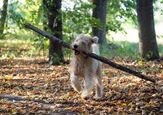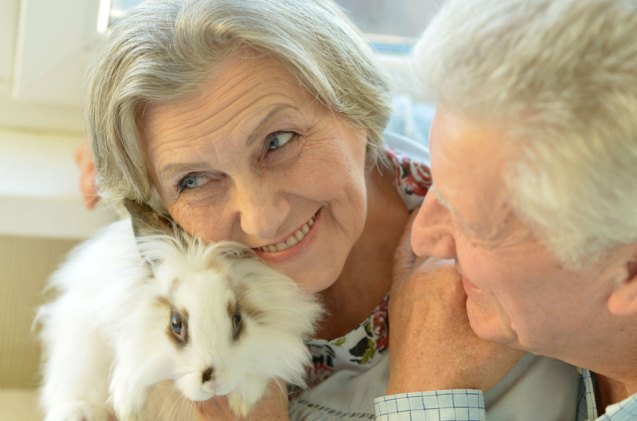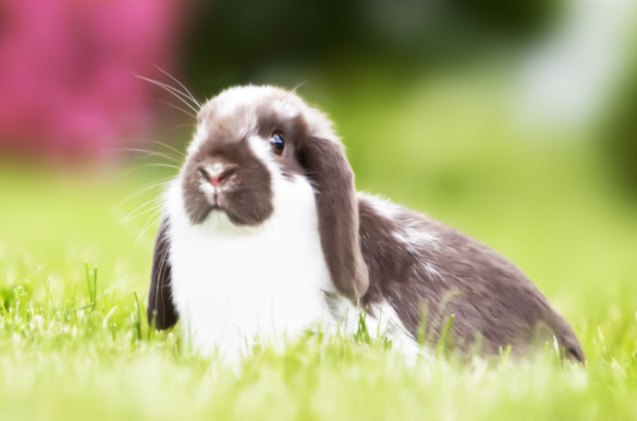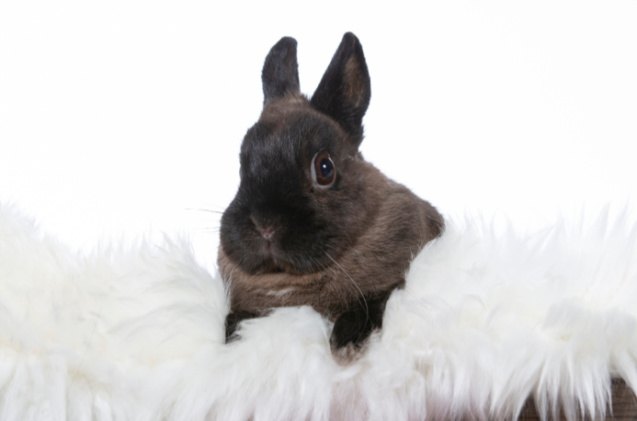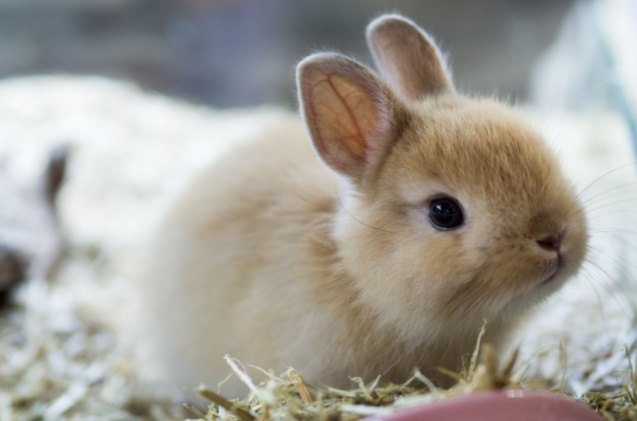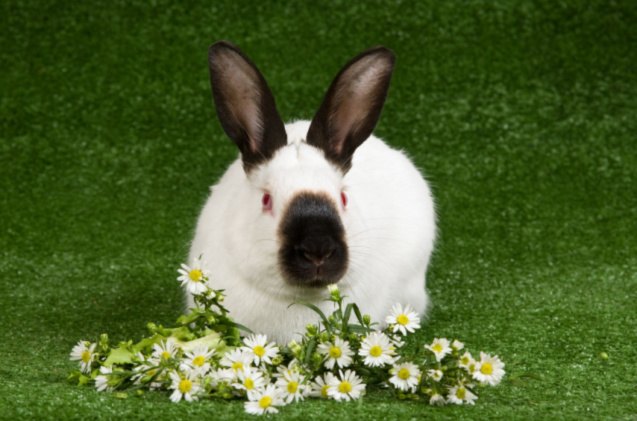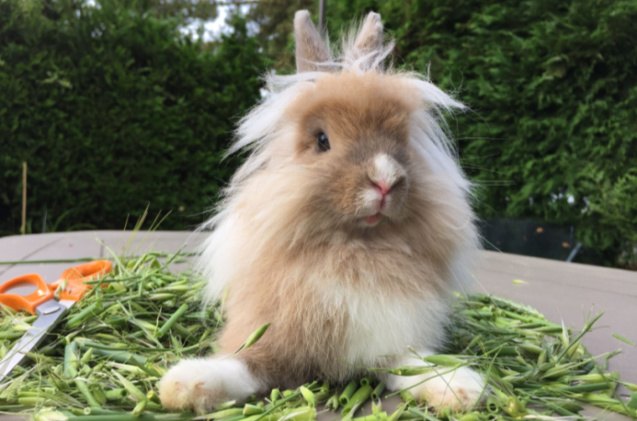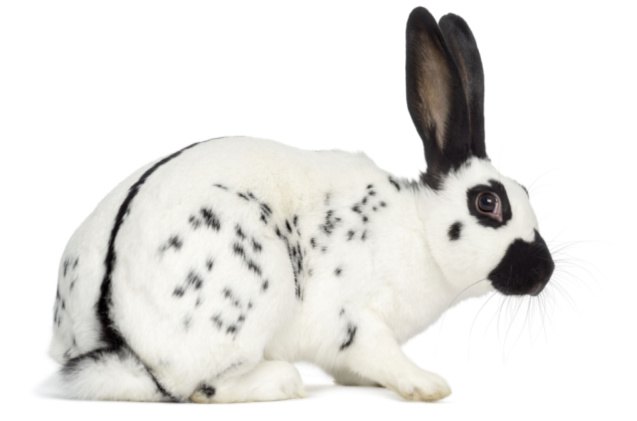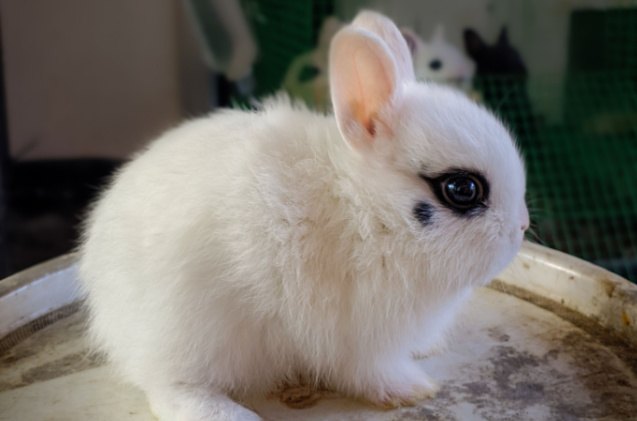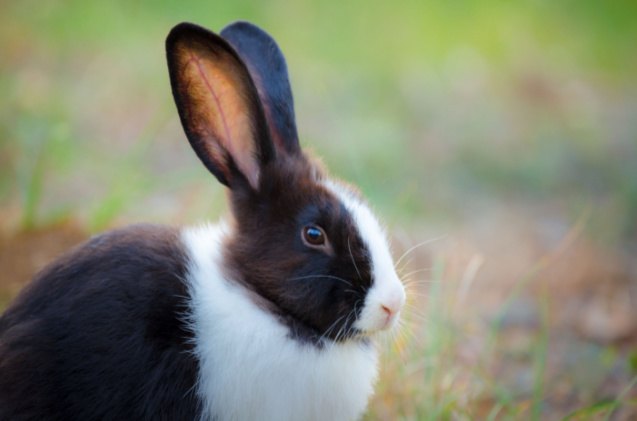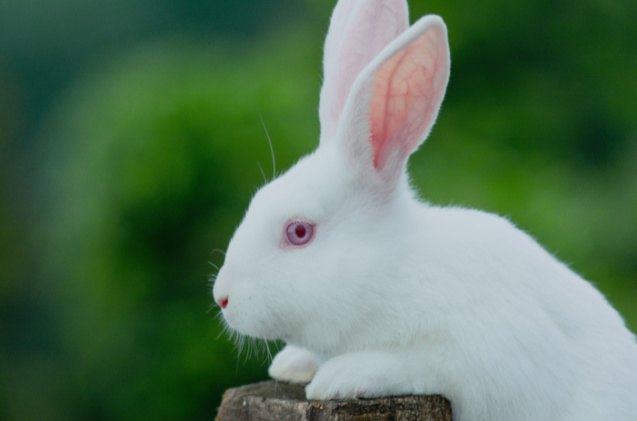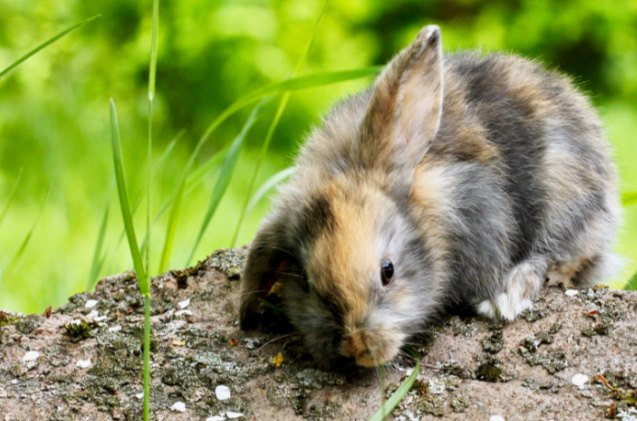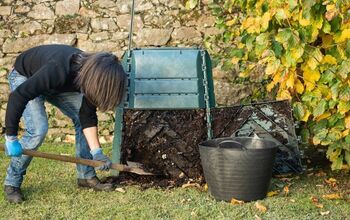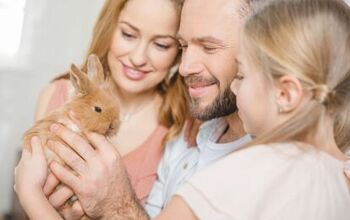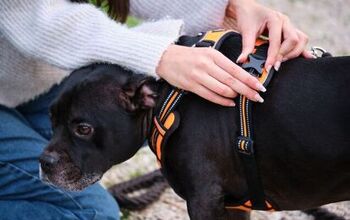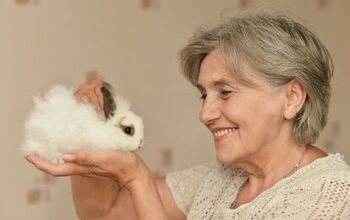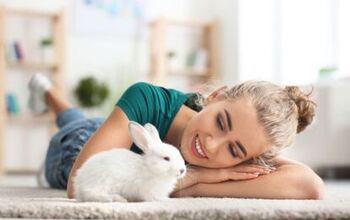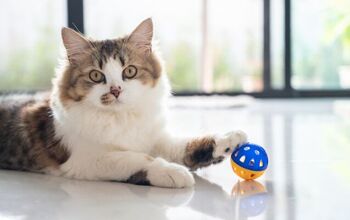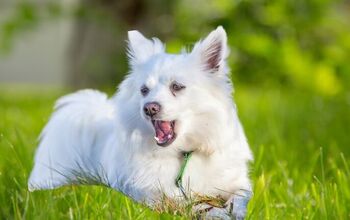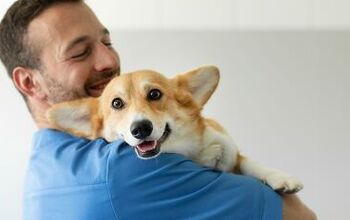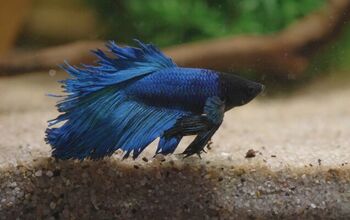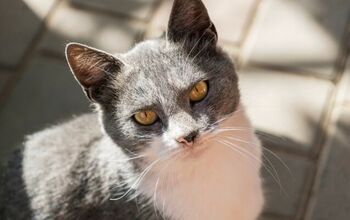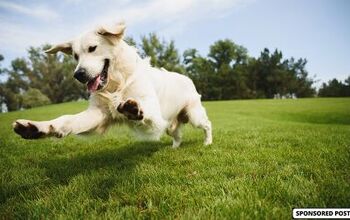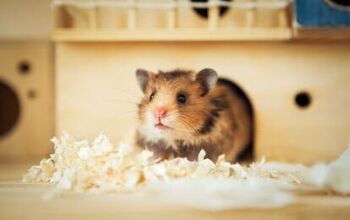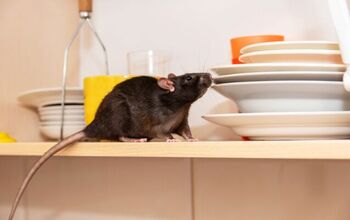Best Rabbits for Seniors

Sharing your golden years with a pet is so rewarding: you have someone to care for, a companion to spend time with, and a sweet, affectionate friend to shower you with love. You might be wondering which pet is the best for seniors – a cat, a dog, or maybe a small animal? Rabbits make a wonderful choice for seniors, for many reasons. They are fairly easy to care for, they are not high maintenance in terms of activity and energy levels, and will fit in great with a slower pace of life that most seniors have. If you’re looking for a pet rabbit to keep you company in your retirement days, or you want to surprise a senior loved one with a fluffy companion, read on – here are the 10 best rabbits for seniors.
#1 Mini Lop Rabbit
Fuzzy, soft, and with charmingly long ears that hang on the sides of their head, the Mini Lop Rabbit will steal your heart in a second. Weighing 3 to 6 pounds on average, these bunnies don’t need too much space to thrive and be happy and will do perfectly well in an apartment as well as a house. These bunnies are known as sweet, friendly, and playful, so they’ll bring joy to their owners on a daily basis – when socialized properly, they will love being petted, enjoy spending time around people and be easy to train.
#2 Polish Rabbit
No one can resist the cuteness of the petite Polish rabbit! Weighing only 2.5 to 3.5 pounds on average, these bunnies stay tiny throughout their lives, which combined with their compact body shape and short head makes them look like literally balls of fluff. It’s not their adorable looks that make them suitable pets, though, but their lovable personalities: Polish rabbits are laid-back, calm, and docile, so they will love nothing more than to be around you and keep you company while you watch TV or do some gardening.
#3 Netherland Dwarf
As they are a dwarf breed, you can expect the Netherland Dwarf to be very small even when fully grown: an adult rabbit of this breed can weigh as little as 1.1 pounds and their maximum weight is just 2.5 pounds. This makes them perfect for seniors that live in smaller apartments and can’t provide ample space for a large enclosure that bigger rabbit breeds need. Netherland Dwarf sports large eyes contrasted with a small head and short upright ears, which gives them a cute cartoonish look, and a quiet, shy, and sweet personality that will charm you from the get-go.
#4 Himalayan Rabbit
It’s hard to miss a Himalayan Rabbit thanks to their distinct markings – colored feet (“boots”), an egg-shaped marking on the nose, and colored tail and ears in either lilac, black, blue, or chocolate. In addition, this is the only rabbit breed with a cylindrical body shape! There’s no denying that Himalayan Rabbits make unique pets, but they are also loving companions as well, thanks to their gentle, calm, and somewhat lazy demeanor. As a small rabbit breed, they weigh 2.5 to 5 pounds on average.
#5 Lionhead Rabbit
Named after the king of the jungle because of the fluffy mane that resembles that of a lion, the Lionhead Rabbit might be small but they sure are mighty, too! These affectionate, energetic, playful balls of fluffy cuteness are a great choice for seniors that want a little more active rabbit as a pet, someone they could play with, or maybe teach a few tricks – Lionheads absolutely love playtime and are quite smart. Even so, at 2.5 to 3.5 pounds on average, these bunnies don’t need an awful lot of room to exercise and can thrive in an apartment.
#6 English Spot Rabbit
With their classic good looks, friendly personality, and a medium size body, English Spot Rabbit is an all-around great companion pet, especially for seniors. They don’t have high-maintenance coats, they can be kept outdoors or indoors (provided that their needs are met), and since they were originally bred to be show animals, they are well accustomed to handling and human interaction. Not to mention that thanks to their signature spotted markings, these bunnies also look adorable! The English Spot Rabbit weighs 5 to 8 pounds on average and has a s stunning full arch body shape.
#7 Dwarf Hotot
This bunny stands out in any crowd thanks to their unusual looks: their bodies are always exclusively pure white, with a contrasting ring of black around their eyes, which is similar to an eyeliner – Dwarf Hotot is definitely easy to recognize. As a dwarf breed rabbit, this bunny weighs 2.5 to 3.5 pounds on average and can do well in an apartment, as they won’t need overly large enclosures to house their necessities. As playful, affectionate, and quite friendly bunnies, Dwarf Hotots make great companions for seniors, with whom they form fast and lasting bonds.
#8 Dutch Rabbit
Considered to be one of the oldest domestic breeds in the world, the Dutch Rabbit has a small, compact body with a rounded head, and short but broad ears, and weighs 4 to 5.5 pounds on average. While these rabbits can be different colors, they always have the same type of marking – dark-colored ears and rump, a stripe of white from the shoulders to the belly, and the so-called “blaze”, which is a tuft of white fur in the center of their face. As for their personality, Dutch Rabbits are gentle, calm, playful, and friendly and make wonderful companions for retirees.
#9 New Zealand Rabbit
If you want a bigger bunny that’s also low-maintenance and sweet as they come, you can’t go wrong with a New Zealand rabbit! Primarily bred for commercial purposes, these bunnies are still docile, easy to handle, and have well-rounded, muscular bodies – they weigh 10 to 12 pounds on average and will need more space than smaller rabbit breeds. Affectionate and even-tempered, these bunnies will make perfect comfort animals or companion pets to those in their golden years.
#10 Harlequin Rabbit
Outgoing, curious, and friendly, the Harlequin Rabbit will make you laugh with their everyday antics! They are moderately energetic and quite playful, so they make a great pets for those that prefer livelier personalities for their companions. These bunnies are best known for the unusual colors of their coat, and come in two varieties, depending on the color – the Magpie, or the Japanese, As a medium to large rabbit breed, they weigh 6.5 to 9.5 pounds when fully grown, and can be kept outdoors or indoors if their enclosure is up to standards.
Are Rabbits Good Pets for Seniors?
When a senior wants to adopt a rabbit in their golden years, or a family member wants to give one to their senior loved one, there are a few factors to consider. First, not all seniors are up to the task of caring for a pet in their old age – a lot will depend on their age, mobility, and capacity. Before adopting a rabbit, ask yourself if the senior who would be responsible for the rabbit is capable of putting out fresh food and water each day, cleaning out the rabbit’s litter or enclosure and replacing their bedding, and letting the rabbit out of their enclosure for at least a couple of hours each day, for some much-needed socialization and interaction. If they have no issue doing daily chores to meet their pet’s needs, such as feeding, cleaning up after them, and providing social interaction, then there’s no reason why they wouldn't find having a rabbit completely manageable.
Even though rabbits need proper care and attention on a daily level, they are not high-maintenance animals. Most rabbits live 5 to 10 years on average, and when cared for properly, they don’t get sick often. One of the main reasons why rabbits make great pets for seniors is their sweet and undemanding nature – they will provide companionship without asking too much in return. In fact, rabbits are so affectionate and calm that they are often used as therapy animals when socialized on time. Their loving demeanor, openness to being cuddled and handled, and overall cuteness can bring emotional support and relief to seniors – and people of all ages, really.
Things to Know Before Getting a Pet Rabbit for a Senior
Rabbits are very specific when it comes to their diet, so their owners have to pay attention to their nutrition – if they fail to do so, there could be serious consequences. They need large amounts of timothy or other grass hay (as much hay as they weigh eaten on a daily basis), leafy greens and certain rabbit-safe vegetables, and fresh water at all times.
When it comes to the potty business, it’s good to know that rabbits can be litter-trained successfully, just like you would do with a cat. They can be taught where to go to pee or poop, so you don’t have to worry about the general mess around the home when you let them out to play. Of course, it does take some effort to litter train a rabbit, but it pays off in the end – not to mention that it’s a great opportunity for the owner to further bond with their new pet. Even so, daily cleaning is a must when you have a rabbit, which is something all senior owners should consider before adopting. Whether it’s emptying the litter box, cleaning out the cage, replacing the bedding, and so on, it is something that is done each day to keep your pet clean and your home, as well. This might be too tiring to some, especially seniors with limited mobility, but most will find that this additional chore is not too taxing for them.
Another thing to consider is rabbit housing. Some rabbit breeds can be kept outdoors, provided they are housed in a well-insulated, weatherproof hutch, and others are only safe when kept indoors. You might even want to consider an elevated hutch to make it easier to clean up and do chores, as you won’t need to get down to floor level to do it. In either case, you should be aware that even smaller bunnies need a fairly generous amount of space to exercise and play in. Rabbits shouldn’t be cooped up in their cage day in and day out, but rather let out to stretch their legs and bond with their owners for at least a couple of hours each day.
This brings us to another aspect of rabbit ownership, which is the fact that the house or the room where the bunny will be let out needs to be rabbit-proofed. As avid chewers, rabbits can destroy your furniture and valuables, and even endanger themselves by nibbling on electric cords and poisonous plants. For that reason, you should make sure to conceal and remove anything that could pose a danger to your pet – which is another thing that might be too much work for some seniors. When you want to take your rabbit outside – and some safe outdoor time is always recommended when possible – you will also need to secure their wellbeing. If you are doing some gardening or sitting on your porch and want your bunny to join you, be sure to provide some type of enclosure so they wouldn't wander off or fall prey to predators.

A proud mama to seven dogs and ten cats, Angela spends her days writing for her fellow pet parents and pampering her furballs, all of whom are rescues. When she's not gushing over her adorable cats or playing with her dogs, she can be found curled up with a good fantasy book.
More by Angela Vuckovic
